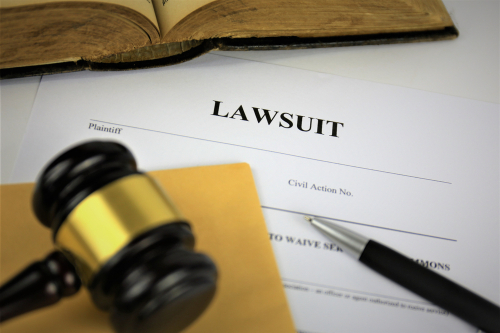Federal court officials can be sued for alleged failure to protect public defender from sex bias, 4th Circuit rules

Image from Shutterstock.
A federal appeals court ruled Tuesday that a former assistant federal public defender in North Carolina can sue court officials for constitutional violations stemming from an alleged faulty investigation of sexual harassment.
The 4th U.S. Circuit Court of Appeals at Richmond, Virginia, ruled that Caryn Devins Strickland could pursue a claim that court officials violated her equal protection rights to be protected from sexual discrimination. She can also sue on claims that officials violated her due process rights by poor implementation of an employment dispute resolution plan, the appeals court said.
The court barred Strickland’s claim for back pay, however, because court officials were protected by sovereign immunity. The court also said Strickland couldn’t challenge the dispute resolution plan on its face because she had failed to “explain why these are innate defects of the EDR plan itself that would apply in all circumstances.”
Strickland was represented by Jeannie Suk Gersen, a professor at Harvard Law School, who called the decision “a major victory” in a statement published by Law.com and other publications. The unanimous decision “made clear that the federal judiciary as an employer is not immune from suits for sex discrimination,” Gersen said.
Federal public defender offices are part of the judiciary, Reuters (via How Appealing) pointed out in its coverage of the case. Law360 also had coverage of the April 26 opinion.
Because the 4th Circuit was one of the defendants, the panel deciding the case was made up of judges from other federal appeals courts. Senior Judge Mary Beck Briscoe of the 10th Circuit at Denver wrote the opinion.
The court noted Strickland’s allegation that former federal public defender Anthony Martinez was involved in an investigation of Strickland’s allegations of sexual harassment against a supervisor, even though Martinez was accused of retaliation.
“Leading Strickland to believe that her only way forward was to obtain a favorable decision from one of the key subjects of the investigation could be found to have deprived Strickland of her property interest in the right to a remedy from injuries incurred because of harassment and discrimination,” the appeals court said.
Other defendants in the case included the U.S. Judicial Conference and the Administrative Office of the U.S. Courts.
In a statement issued to several publications, the Administrative Office of the U.S. Courts said it couldn’t comment on the litigation. But it said the judiciary has made “significant improvements in the employment dispute resolution processes.”



